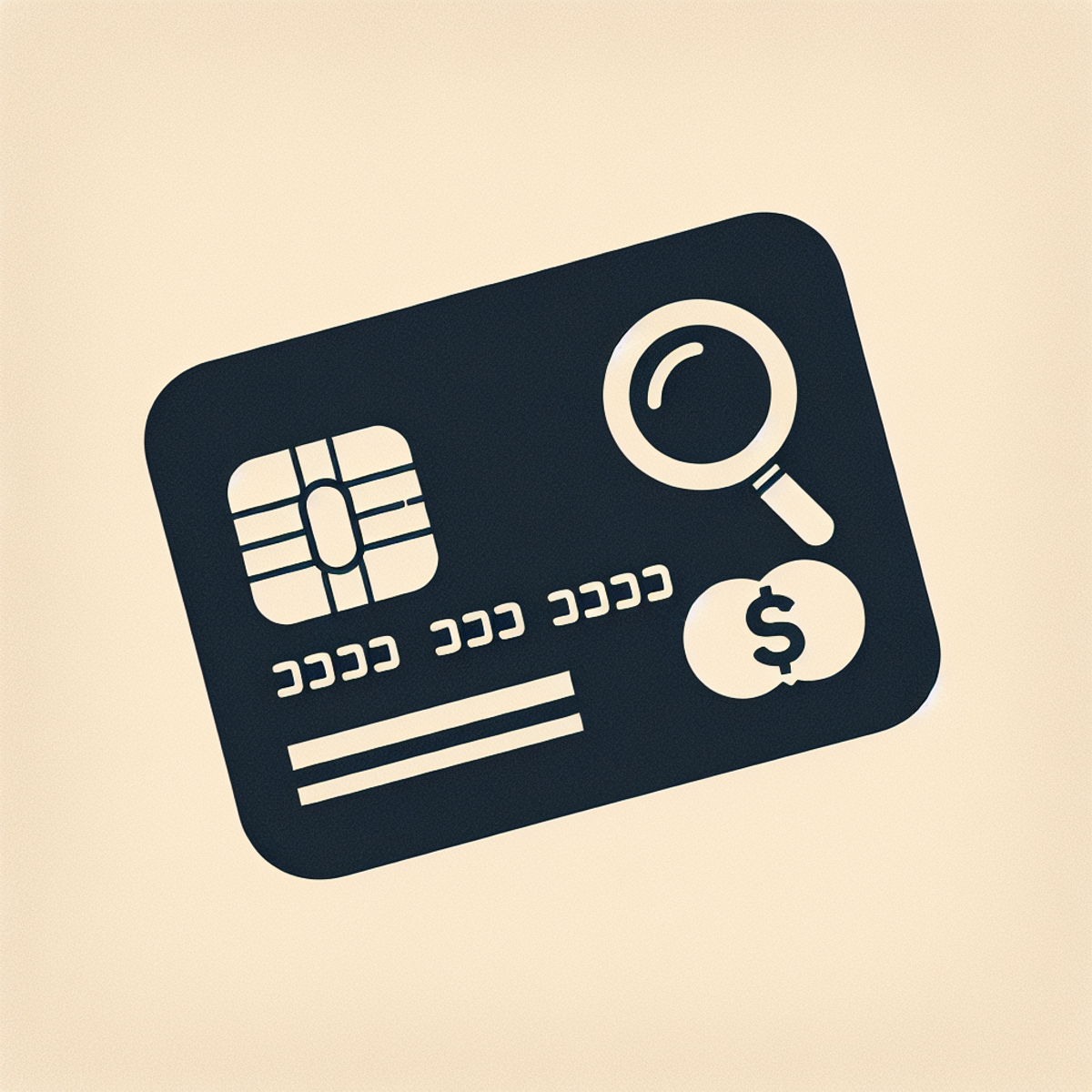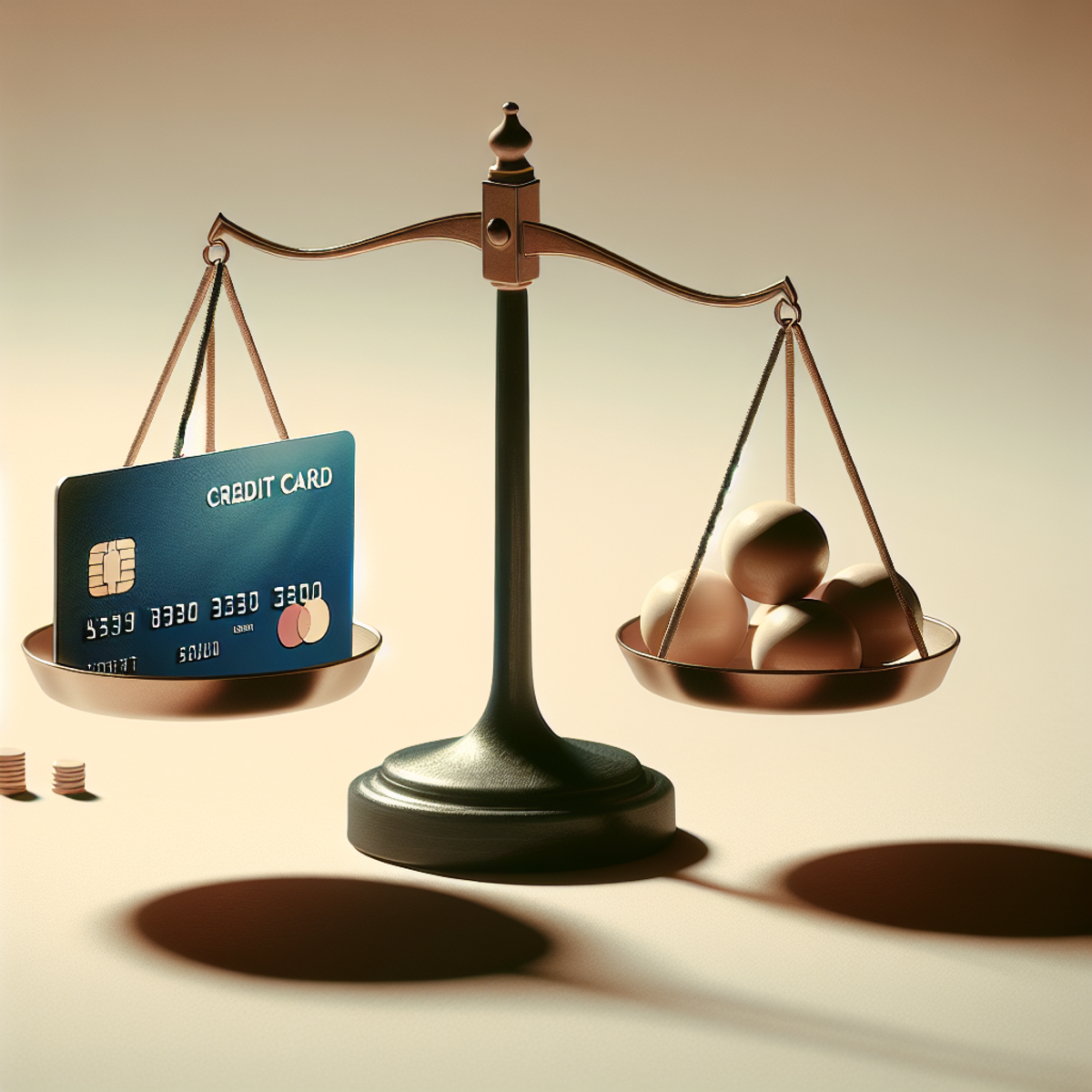
Introduction
For many people, credit cards are a common part of managing their money. While they can be useful for earning rewards and getting cash back, credit card fees can be expensive. It’s important to understand these fees so you can avoid credit card fees and save money.
Here are some examples of fees that credit card companies may charge:
- Annual fees: This is a fee that you have to pay every year just for having the credit card.
- Finance charges: If you carry a balance on your credit card, you’ll have to pay interest on that balance.
- Late payment fees: If you don’t make your credit card payment on time, you’ll be charged a fee.
- Foreign transaction fees: When you use your credit card outside of your home country, you may have to pay an extra fee.
- Balance transfer fees: If you move a balance from one credit card to another, you might have to pay a fee.
- Cash advance fees: If you use your credit card to get cash, there’s usually a fee for that.
- Card replacement fees: If you lose your credit card and need a new one, the credit card company may charge you for it.
- Returned payment fees: If a payment you make with your credit card doesn’t go through, you could be charged a fee.
- Over limit fees: If you spend more than your credit limit, there may be a fee.
Knowing about these charges is the first step towards avoiding them. In this guide, we’ll share tips on how to minimize credit card fees so you can save money and make the most of your credit card. For more detailed information, check out MakeThatbenjie.com.
Understanding Credit Card Fees
Credit card companies are adept at generating revenue, and credit card fees play a significant role in this. The spectrum of fees includes, but is not limited to, finance charges, annual fees, late payment fees, and various transaction fees. Here’s how these fees contribute to the profits of credit card issuers:
How Credit Card Fees Contribute to Profits
- Finance Charges: These are interest fees applied to any carried balance that remains after the billing cycle. They can substantially increase the cost of borrowed funds.
- Annual Fees: Some cards charge a yearly fee in exchange for benefits such as rewards programs or travel perks.
- Late Payment Fees: Incurred when a cardholder fails to make the minimum payment by the due date.
- Transaction Fees: These can be foreign transaction fees on international purchases or balance transfer and cash advance fees.
Avoiding Credit Card Fees: Strategies and Tips
The introduction of the Credit CARD Act of 2009 marked an important milestone in consumer protection. This law brought about significant changes, aimed at ensuring transparency and fairness in how credit card companies disclose their fees. Yet, merely understanding these disclosed fees is only half the battle.
To truly dodge credit card fees, you need to grasp how they are applied and when they occur. It’s also crucial to know the effective strategies to minimize or bypass these fees entirely. In the following part, we will delve into practical tips on how to steer clear of common credit card fees. The goal is simple: save money and make your credit card work for you.
Reforms Introduced by the Credit CARD Act of 2009
- Clearer Fee Disclosure: The Act requires issuers to provide clearer explanations of the costs associated with a credit card upfront, often seen in the form of a Schumer Box.
- Limitations on Fee Increases: There are restrictions on when and how banks can increase fees or interest rates.
- Fairness in Application: The Act also dictates how payments are applied, aiming to minimize excessive finance charges for consumers.
Despite these regulations, some credit card fees may still be waived upon request. Savvy consumers contact their credit card issuer directly to negotiate fee waivers or reductions. This proactive approach can lead to substantial savings and bolster one’s financial health.
It is essential for cardholders to stay informed about their credit card terms and actively manage their use to sidestep unnecessary charges.

Common Credit Card Fees to Watch Out For
When it comes to credit cards, it’s essential to be aware of the common credit card fees that can sneak up on you. Understanding these fees is key to managing your personal finances effectively.
1. Annual Fees
Some credit cards charge an annual fee for membership. This is a yearly charge for the privilege of using the card.
2. Finance Charges
These refer to the interest accrued on any balance that isn’t paid off within the grace period.
3. Late Payment Fees
If you don’t pay at least the minimum amount due by the payment due date, you’ll be hit with a late payment fee.
4. Foreign Transaction Fees
Planning a trip abroad? Be mindful of foreign transaction fees. These are fees charged when you make purchases outside of your home country.
5. Balance Transfer Fees
When you move a balance from one card to another (usually to take advantage of lower interest rates), there’s often a fee involved.
6. Cash Advance Fees
Need cash in a hurry? Using your credit card for a cash advance can come with hefty fees.
7. Card Replacement Fees
Lose your card or need a replacement for some other reason? Some issuers charge a fee for this service, especially if expedited delivery is requested.
8. Returned Payment Fees
If a payment is returned because there aren’t enough funds in your bank account to cover it, expect to pay a returned payment fee.
9. Over Limit Fees
Going over your credit limit can result in an over limit fee. It’s important to keep track of spending and stay within your allotted credit limit.
Being aware of these common fees can help you manage your credit card use more effectively and potentially save you money in the long run.
1. Annual Fees
The concept of an annual fee attached to a credit card often puzzles many users. They wonder, why should they pay for the ability to spend money? This fee, charged once a year, is typically set by credit card companies. They do this as a means to offer exclusive benefits and maintain premium services. Understanding this concept is crucial if one wants to effectively Avoid Credit Card Fees.
For instance, cards like those offered by American Express and Visa often come with an array of perks. These can be highly valuable for certain consumers. However, it’s equally important for cardholders to assess these benefits. They need to weigh whether these perks justify the cost of the annual fee. Doing so can help them Avoid Credit Card Fees.
To determine if an annual fee is worth it, cardholders should evaluate the following:
- Rewards: Compare the rewards rate against the fee. If the cash back, points or miles earned exceed the cost of the fee, it may be beneficial.
- Exclusive Benefits: These might include access to airport lounges, hotel upgrades or concierge services provided by companies like Mastercard.
- Insurance Protections: Travel insurance, purchase protections, and extended warranty coverage are some examples.
- Sign-up Bonuses: Initial bonuses can offset many years’ worth of annual fees.
However, if you find that your spending habits don’t align with high rewards earning potential or you seldom use the additional perks, opting for a no-annual-fee credit card might be a wiser choice. Financial institutions such as Bank of America and Discover offer cards without annual fees that still provide valuable rewards programs.
For those who prefer not to have another bill to pay, exploring options from Capital One, which offers competitive no-annual-fee cards alongside their premium counterparts, could lead to significant savings without sacrificing credit card convenience and security.
By carefully assessing whether an annual fee is commensurate with the card benefits received, consumers can make an empowered decision about which credit card best suits their financial lifestyle. Selecting wisely means enjoying all the upsides of credit cards without unnecessary costs dragging down your budget.
2. How Finance Charges and Interest Rates Work
When you have a balance on your credit card that you don’t pay off in full each month, the credit card company will charge you for borrowing that money. These charges are called finance charges. To calculate them, the credit card company uses your balance and the interest rate.
Knowing how finance charges are calculated can help you make smarter choices with your credit card and avoid unnecessary costs. Here’s what you need to know:
The Components of Finance Charges
- Outstanding balance: This is the total amount you owe on your credit card at the end of each billing cycle.
- Interest rate: Usually shown as an Annual Percentage Rate (APR), this is the yearly cost of borrowing money expressed as a percentage of the loan amount.
- Billing cycle: This is the period of time between two consecutive billing statements, usually around 30 days.
How Finance Charges Are Calculated
The credit card company calculates your finance charge by multiplying your average daily balance for the billing cycle by the daily periodic rate (which is your APR divided by 365) and then multiplying that result by the number of days in the billing cycle. Understanding this calculation is a crucial step to Avoid Credit Card Fees.
Tips to Minimize Finance Charges
If you can’t pay off your balance in full each month, here are some strategies to reduce the amount you’ll have to pay in finance charges:
- Look for credit cards with low APRs: When comparing credit cards, pay attention to their APRs. Cards with lower APRs will have lower finance charges if you carry a balance.
- Consider cards with promotional APR offers: Some credit cards offer low or even zero percent APR for a certain period after you open an account. If you’re planning a big purchase that will take some time to pay off, these cards can help you save on interest.
- Aim to pay more than the minimum each month: While making the minimum payment will keep your account in good standing, it won’t make much of a dent in your balance. Paying more than the minimum can help you pay off your debt faster and reduce the amount of interest you’ll be charged.
Remember, understanding how interest and finance charges work is an important part of managing your credit card wisely and staying on top of your finances.
3. Foreign Transaction Fees
Foreign transaction fees are extra charges that credit card companies add to purchases made outside the United States. They usually make up around 2-3% of the total amount you spend, which can really add up if you’re traveling or shopping internationally.
Why Do Credit Cards Charge Foreign Transaction Fees?
Credit card companies charge these fees to cover the cost of converting currencies and processing international transactions. It’s their way of offsetting the risk associated with these types of purchases.
How Can You Avoid Foreign Transaction Fees?
If you frequently travel abroad or shop from international websites, it might be worth getting a credit card that doesn’t charge foreign transaction fees. Here’s what you can do:
- Research Travel Credit Cards: Look for credit cards specifically designed for travelers, like those offered by Visa and Mastercard. These cards often come with perks such as no foreign transaction fees and travel rewards.
- Compare Credit Card Fees: Before applying for a new credit card, make sure to read the fine print and understand its fee structure. Look for cards that explicitly state they have no foreign transaction fees.
- Consider Prepaid Travel Cards: Another option is to use prepaid travel cards, which allow you to load money onto them in different currencies. These cards can be a good alternative if you want to avoid foreign transaction fees altogether.
What About Dynamic Currency Conversion (DCC)?
When making a purchase abroad, you may encounter a service called dynamic currency conversion (DCC). This service shows you the cost of your purchase in your home currency at the point of sale, making it easier to understand how much you’re spending.
While DCC may seem convenient, it often comes with its own set of fees and an unfavorable exchange rate. In most cases, it’s better to choose the local currency option instead of paying in your home currency.
Final Thoughts
Understanding foreign transaction fees and how to avoid them can save you money when using your credit card internationally. By choosing the right card for your needs and being aware of potential charges, you can make the most of your travels without unexpected fees weighing you down.
4. Balance Transfer and Cash Advance Fees
Balance transfer fees and cash advance fees are two other types of costs that credit card users should be aware of. Understanding these fees can make a significant difference in your debt management strategies or emergency fund withdrawals.
The Purpose of Balance Transfers
A balance transfer fee is a charge incurred when you move your debt from one credit card to another. This strategy, known as debt consolidation, is often utilized to take advantage of lower interest rates on a new card.
For instance, if you have a credit card with a high-interest rate, you could potentially save money by transferring the balance to a card with a lower APR (Annual Percentage Rate). However, it’s essential to remember that most credit cards charge a fee for this service, typically around 3-5% of the transferred balance.
Strategies to Minimize Balance Transfer Fees
To mitigate the cost of balance transfer fees:
- Look for cards offering introductory promotions where the balance transfer fee is waived or reduced.
- Calculate whether the potential interest savings outweigh the cost of the balance transfer fee.
The High Cost of Cash Advances
On the other hand, a cash advance fee is levied when you use your credit card to withdraw cash from an ATM. These transactions are costly due to two key factors:
- Upfront Fees: Cash advances come with an immediate fee, typically around $10 or 5% of the transaction amount, whichever is higher.
- Interest Accrual: Unlike regular purchases, there’s no grace period for cash advances – interest begins accruing immediately.
Given these costs, it’s advisable to consider cash advances only as a last resort in financial emergencies.
Alternatives to Cash Advances
It’s beneficial to explore alternatives to cash advances:
- Using your debit card for ATM withdrawals doesn’t incur any interest charges.
- If possible, consider other forms of short-term financing that may have lower interest rates.
By understanding these fees and making strategic decisions, you can effectively manage your credit costs.
5. Other Types of Credit Card Fees
In addition to the fees previously discussed, there are other types of credit card fees that cardholders should be aware of.
Late Payment Fee
Late payment fees can be a costly consequence of not managing credit card bills effectively. These fees are imposed when payments are not made by the due date. To avoid these, it’s crucial to establish good payment habits. For instance, setting up automatic payments can ensure that your bills are paid on time every month. Additionally, using payment reminders can help you keep track of your due dates and avoid late payments.
Card Replacement Fee
Another type of fee that can crop up unexpectedly is the card replacement fee. This fee is often charged when you request a new card, particularly if you need expedited delivery or if the card needs to be delivered overseas.
It’s important to keep your credit card safe to avoid the need for a lost/stolen card replacement. However, in case this does happen, contacting your credit card issuer promptly can sometimes result in this fee being waived.
Returned Payment Fee
Returned payment fees are charged when a payment is rejected due to insufficient funds in your account. To avoid this situation, ensure you have adequate funds before making a credit card payment.
Over Limit Fee
Over limit fees come into play when you exceed your credit limit. Ensuring that you monitor your credit balance regularly can help prevent these charges from occurring.
By understanding the different types of credit card fees and their avoidance strategies, you can make more informed financial decisions and maximize your credit card benefits.

Maximizing Credit Card Benefits While Minimizing Fees
Avoiding Credit Card Fees Credit cards are powerful financial tools that offer a range of advantages such as rewards, welcome offers, and bonuses. However, they can also come with fees that can eat into those benefits. The key is to use credit cards strategically to maximize the perks while minimizing the costs.
Reading the Fine Print
It’s important to understand the terms and conditions of your credit card agreement so you’re aware of any potential fees. Here’s what you can do:
- Educate Yourself: Take the time to read through the fine print of your credit card agreement. Pay attention to details like annual fees, foreign transaction fees, balance transfer fees, and late payment fees. Understanding these nuances will help you make informed decisions and avoid any surprises down the line.
- Leverage Benefits: Many credit cards offer additional benefits like purchase protection or extended warranties on eligible purchases. These perks can be valuable and save you money in certain situations. For example, if an item you bought with your credit card gets stolen or damaged within a specified period, you may be able to get a refund or have it repaired/replaced.
Regular Statement Reviews
Monitoring your credit card statements regularly is essential for spotting any potential issues or errors. Here’s what you should do:
- Stay Informed: Take the time to review your credit card statements carefully each month. Look for any transactions that seem unfamiliar or suspicious, as they could be signs of fraudulent activity.
- Report Promptly: If you notice any discrepancies or unauthorized charges, it’s crucial to act quickly. Contact your credit card issuer immediately to report the issue and initiate a dispute if necessary.
By following these practices, you can take full advantage of your credit card benefits while minimizing the chances of being hit with unexpected fees. And the benefits can be quite rewarding indeed! Not only do you get access to perks like premium customer service and exclusive events, but you also earn points that can be redeemed for various rewards such as travel, merchandise, or even cash back.
Remember, the key is to strike a balance between enjoying the benefits and being mindful of the potential costs. With careful attention and smart usage, credit cards can become a valuable tool in your personal finance arsenal.
Using Credit Cards Responsibly for Long-Term Savings
At the heart of managing credit card expenses lies one key principle: responsible credit use. It’s not just about avoiding fees, but also about making smart decisions that lead to long-term savings.
Timely Repayment
Missing due dates can result in late payment fees and potential damage to your credit score. To avoid this, consider setting up automatic payments or reminders.
Managing Your Spending
A common pitfall for many cardholders is overspending, which subsequently leads to a revolving balance and unnecessary finance charges. Hence, it’s crucial to:
- Set a budget that factors in your income, essential expenses, and savings goals.
- Ensure your credit card spending aligns with this budget.
- Regularly track your expenditures against the budget.
These habits help maintain an affordable balance on your credit card and ensure you’re not spending more than you can pay off each month.
Making Use of Card Benefits
Lastly, make use of benefits offered by your credit card issuer. For instance, some cards offer cash back or rewards points on purchases, which can lead to significant savings if used wisely.
Remember, a credit card is a financial tool. Just like any tool, its effectiveness depends on how well you use it.

In Conclusion
Armed with knowledge and a proactive mindset, managing credit card fees can be less daunting. Understanding the fees and their implications is key. With this awareness, you’re better equipped to employ strategies that minimize or avoid these charges.
In addition, making use of benefits offered by your card can turn it from a potential liability into a valuable asset. Always remember to review your statements on a regular basis. This helps in keeping track of your expenses and fee charges.
Lastly, ensure you make timely repayments and manage your spending effectively. These habits will aid you significantly in your quest to Avoid Credit Card Fees.
Remember, these fees are not set in stone. They can be avoided or significantly reduced by understanding the charges and making informed decisions about credit card use.
The key is to select the right credit card that aligns with your spending habits and financial goals. Whether you prefer cash back cards, travel rewards cards, or student cards, there is something for everyone.
Each type of card offers unique advantages:
- Cash back cards reward you with a percentage of your spendings returned as cash.
- Travel rewards cards accumulate points or miles that can be redeemed for travel-related expenses.
- Student cards are designed to help students build credit while offering rewards on everyday purchases.
By minimizing unnecessary fees, these benefits become more valuable, contributing to improved financial health and long-term savings.
Ultimately, the power to control credit card fees lies in your hands. Be proactive, stay informed, and make smart choices to maximize the benefits of your credit cards while keeping costs low.
